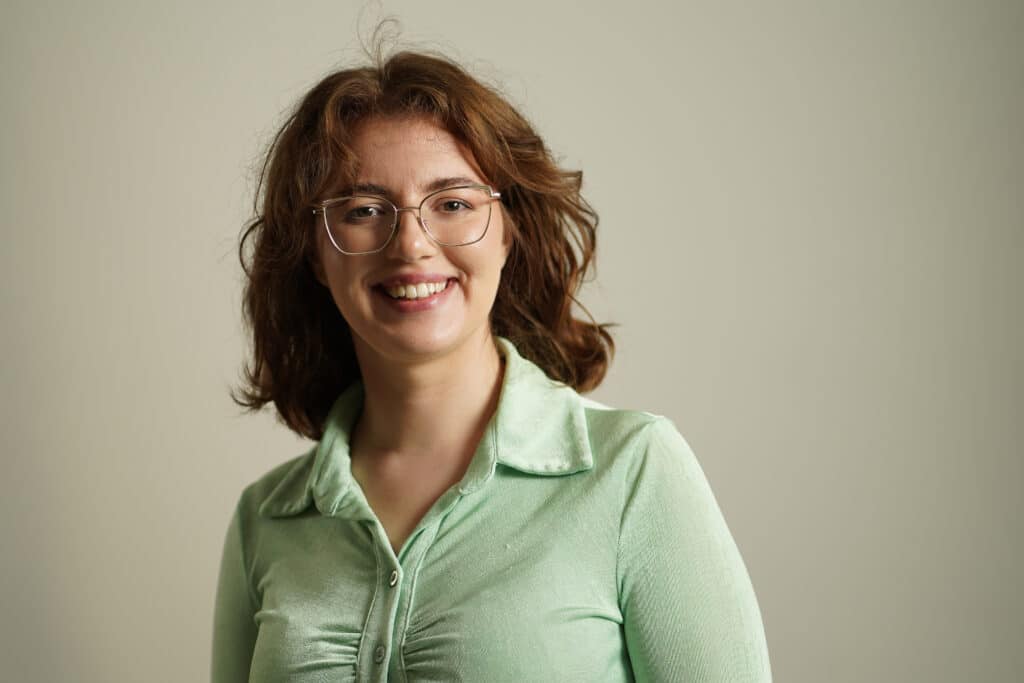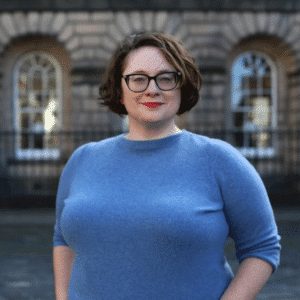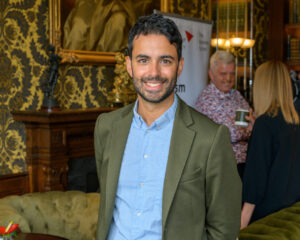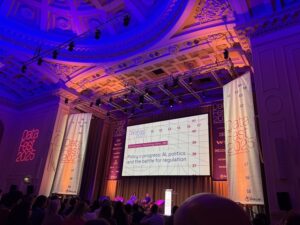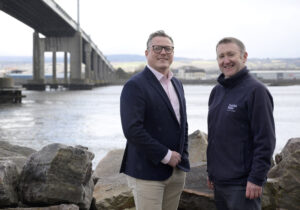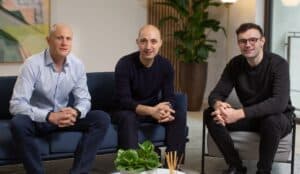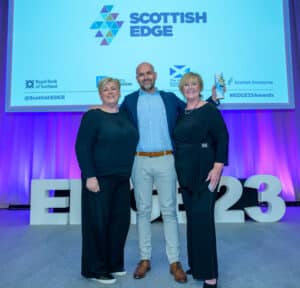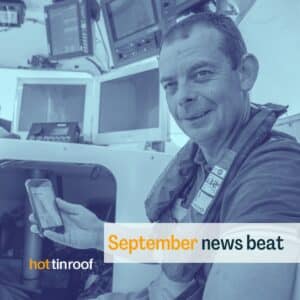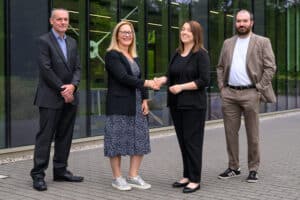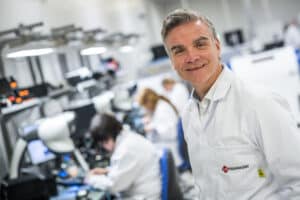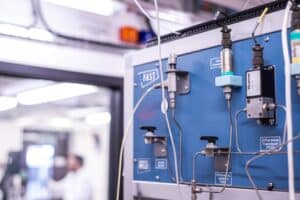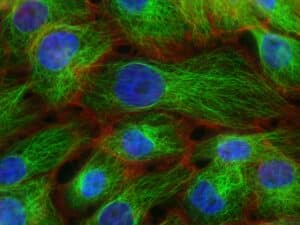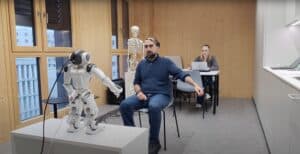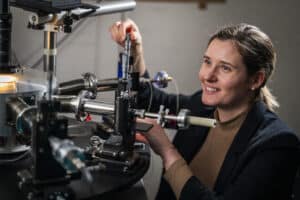New technology could remove the need for painful smear tests
A non-invasive, test-at-home device which screens for cancer-causing HPV strains in regular menstrual blood has been developed with support from the Venture Builder Incubator (VBI) at the University of Edinburgh.
The test, which could remove the need for painful smear tests altogether, has been developed by postgraduate student Sânziana Foia with expert support from the Venture Builder Incubator. The new device could provide results in as little as 15 minutes.
Foia is now gauging interest in the system through a website that can take pre-orders. This will help her demonstrate demand for the device to potential investors and the National Health Service (NHS).
NHS data reveals that around a third of women in the UK miss their smear tests each year due to concerns ranging from pain and embarrassment to fear and body consciousness. This highlights the need for alternative solutions, especially for younger individuals who are not invited for smear tests until the age of 25. Startup Papcup aims to empower women to take ownership of their own cervical health.
Foia’s company, Papcup, was part of the 2023 cohort of the VBI programme, an incubator that helps doctoral students and early-career researchers (ECRs) from throughout the UK to test their business ideas or grow their existing startup companies.
The programme gives budding entrepreneurs the knowledge and skills they need to test their ideas. It introduces them to the network of investors, advisors, and other experts in Edinburgh’s innovation ecosystem and beyond.
VBI’s programme uses data to generate benefits for businesses and wider society through the Data-Driven Innovation (DDI) initiative, part of the £1.3 billion Edinburgh & South-East Scotland City-Region Deal.
Cancer Research Horizons, the innovation engine of Cancer Research UK, translates novel discoveries into new tools, technologies, and treatments for the benefit of cancer patients. Cancer Research Horizons has established an entrepreneurial programme to foster an academic culture that encourages and rewards entrepreneurship, aiming to maximise and expedite the translation of scientific discoveries into patient benefits.
To further this mission, Cancer Research Horizons has partnered with the Venture Builder Incubator (VBI) to support up to ten teams of early-career researchers, helping them develop the translational and entrepreneurial skills necessary to advance their discoveries. Papcup was one of the teams supported on the fourth cohort via this partnership.
VBI is now recruiting students and researchers for the fifth cohort of its programme, which includes a special focus on health and social care startup companies.
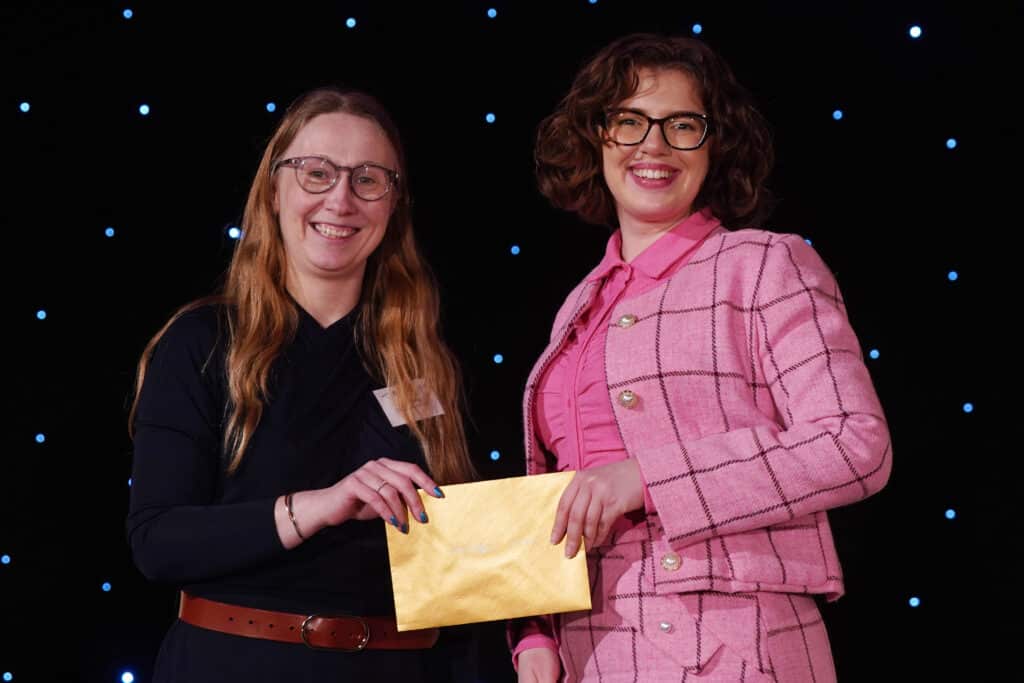
Foia, who is currently studying for her doctorate in bioengineering at Imperial College London, said:
“One of the best elements of the VBI programme was that the programme gave concrete, practical support. For example, when I needed help with the electronics for Papcup, the team helped me find a contractor. The networking was of high quality and connected me with all the right people. I welcome fellow researchers and innovators to take full advantage of the support provided by VBI and its partners.”
Dr Alessia Errico, Cancer Research Horizons’ associate director for search and evaluation and entrepreneurial programmes lead, said:
“The programme provides ECRs like Sânziana access to bespoke training, 1-2-1 support and new networks that are helping them to navigate the translation process to deliver practical solutions for the benefit of people affected by cancer.”
VBI is supported by the Barclays Eagle Labs Ecosystem Partnership Programme. The Ecosystem Partnership Programme supports organisations, embedded in their local entrepreneurial ecosystem to help boost their support to tech and digital businesses. Organisations could apply for matched funding to deliver new or amplify existing activities that address opportunities or challenges that have been identified within their local ecosystem.
In addition to support via the Ecosystem Partnership Programme, participants will be able to access support from Barclays Eagle Labs including business mentoring, growth programmes and connectivity to physical spaces across the UK, including Aberdeen, Edinburgh and Glasgow.
Amanda Allan, Director of Barclays Eagle Labs, added:
“Edinburgh is a world-renowned hub, not only for data-driven innovation but also for advances in health and social care.
“Using our Ecosystem Partnership Programme, we’re allocating funding to organisations like the University of Edinburgh who are already plugged into their regional ecosystems. We are proud to be able to support these projects which are designed to help early-stage tech entrepreneurs. This ensures our on-going commitment to support the tech sector which is vital to the continued growth of local economies across the whole of the UK.”
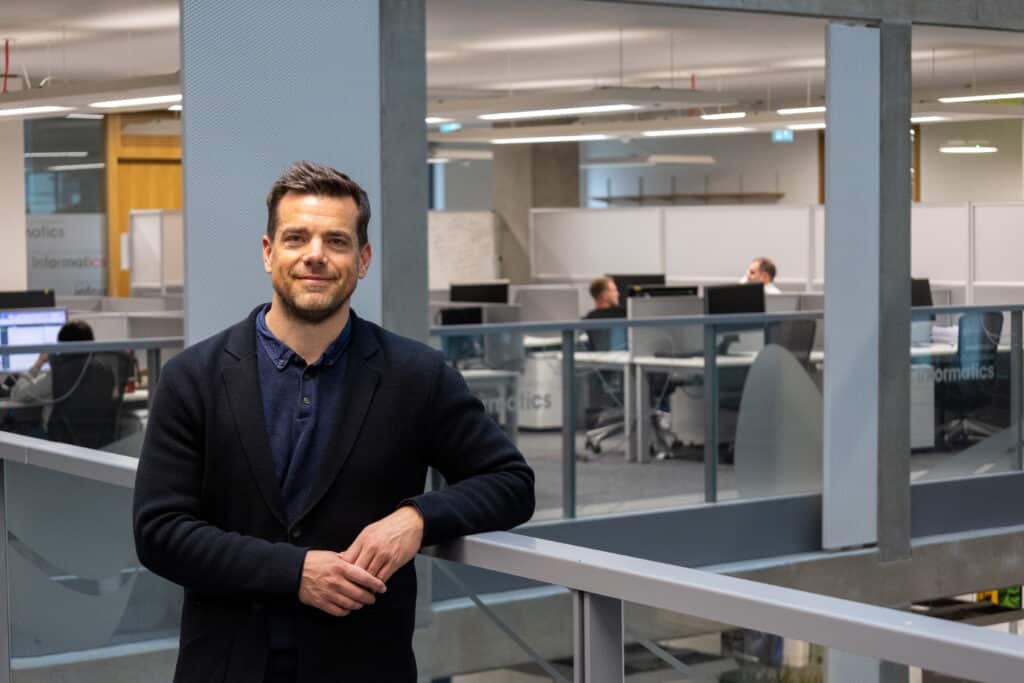
Andrew Parfery, who built and sold a successful social care business Care Sourcer, was recently appointed as the new VBI programme manager. He said:
“We’re looking for academics with ideas that meet clear needs within health and social care. So much support is available within the entrepreneurial ecosystem – both here in Edinburgh and beyond – and the VBI programme can help innovators access it.
“The diverse nature of the ecosystem is one of the reasons why Edinburgh is widely recognised as a global centre of excellence for health and social care entrepreneurship. My ambition is to scale and use VBI as a best-in-class example of how to build an entrepreneurial campus at the University of Edinburgh. We welcome applications for the fifth cohort of the VBI programme, which closes on July 15, 2024.”

